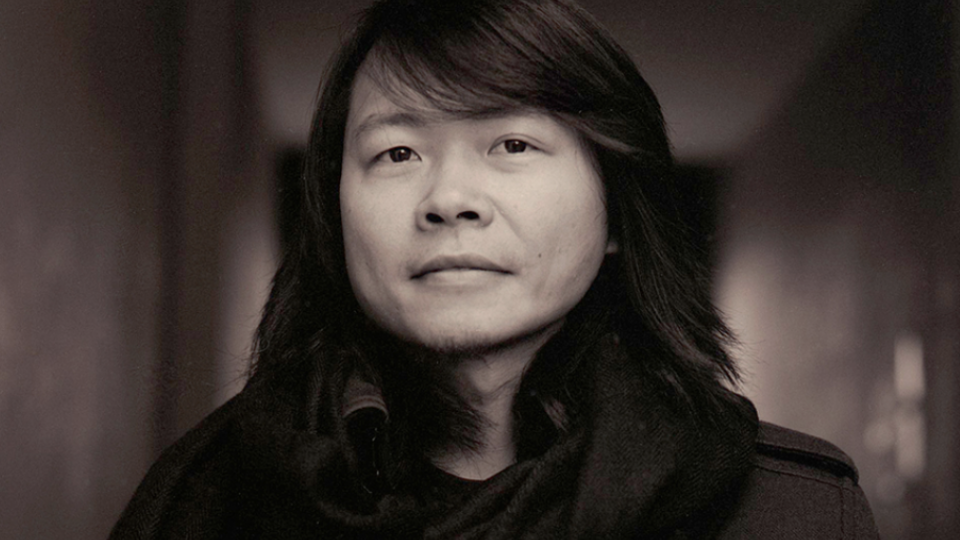
Yuk Hui (Foto) ist ein Philosoph aus Hongkong, der Technische Informatik, Kulturtheorie und Philosophie an der Universität Hongkong und am Goldsmiths College in London studierte. Er unterrichtete u. a. am Institut für Philosophie und Kunstwissenschaft der Leuphana Universität Lüneburg, an der Chinesischen Hochschule der Künste und an der Bauhaus Universität Weimar. Derzeit ist Yuk Hui Professor für Philosophie an der Erasmus-Universität Rotterdam und Professor an der City University of Hong Kong. Im Philarchive ist das von ihm herausgegebene (und per Open Access downloadbare) Buch über die „Kybernetik für das 21. Jahrhundert“ erschienen, das der „epistemologischen Rekonstruktion“ der Kybernetik gewidmet ist. In der Einleitung heißt es:
„In this volume, we will see how cybernetics was applied in various domains in politics, design, engineering and art in the twentieth century. This anthology is dedicated to epistemological reconstruction. Some contributors reconstruct the history of cybernetics and its significance in both the history of philosophy and the history of technology; others discuss the reception and localization of cybernetics in Poland, Chile, the Soviet Union, China, Japan, the USA and Britain. Different scientific communities have attempted to localize cybernetics in order to resolve specific socio-political problems, ranging from the Cybersyn project in Chile to birth control policy in China. These accounts provide the historical and cultural background of the emergence of cybernetics in different parts of the world, and transmit the names of scientists and thinkers, as well as some neologisms, that remain unknown to most of us today. For example, a Polish thinker inspired by Ampère has further elaborated on the term ‘cybernetics’ as the art of governance, and China’s one-child policy was implicitly an application of cybernetics. If we want to look for cybernetics for the twenty-first century, it is necessary to take note both of the diversity of thought and imagination that happened on other continents, and of the shortcomings of the cybernetic projects. Cybernetics does not have a single history limited to the invention and elaboration of some American scientists, nor to that of a few recently rediscovered French thinkers who connect cybernetics to continental philosophy. (…) The richness of cybernetics is yet to be explored. However, despite the temptation to categorize cybernetics according to different localities, it is futile to assign a nationality to cybernetics, because cybernetics aims to be a universal science, and as such it cannot be pinned down to a specific nation, as Stanford Beer claimed in his lecture ‘Recursion of Power’, which started with an appreciation of Pierre Teilhard de Chardin’s noosphere.7 At the same time, as a universal science, it has to be ‘placed’, therefore subject to a ‘localization’, or it would remain an ‘abstract universal’, as Hegel would call it. (…) The anthology, dedicated to epistemological reconstruction in both the historical and geographical sense, is divided into two parts. The first focuses on the history of concepts in cybernetics. (…) The second part is dedicated to the development and implication of cybernetics in different regions around the world. (…)
This volume is the first anthology of the research project ‘Cybernetics for the 21st century’. It attempts to enlarge the cartography of cybernetics, but it is still far too limited to cover the whole range of cybernetic thinking that emerged in the twentieth century. Neither can it sufficiently cover the relation between cybernetics and today’s biotechnology, neuroscience, military technology and space technology. However, as we know that all futures are unthinkable without revisiting the past, I hope that this historical-epistemological project can provide inspiration for researchers who are interested in the history and aftermath of cybernetics. The second phase of the project will be dedicated to the future of cybernetics, and in this regard, we are envisioning Cybernetics for the 21st Century Vol. 2.“

